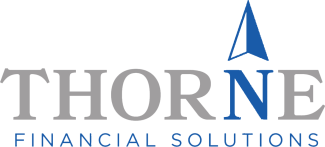Life Insurance
Life and health insurance is a way of looking at certain financial risks that would be devastating if they arose. For example, the loss of an income earner, especially early in life can cause extreme financial hardship for those left behind. How will the mortgage be paid? How will the children’s...
Disability Insurance
Income Replacement Your ability to earn an income is quite simply your biggest asset. During a disability, household bills still need to be paid. Disability Insurance provides a benefit, usually 60-70% of the annual salary, in the event the insured becomes disabled and is unable to work. There are...
Critical Illness Insurance
Critical Illness Insurance is a relatively new product, which was introduced in the 1980s. It pays a benefit to the insured in the event the individual is diagnosed with any of a specified list of critical illnesses such as cancer, heart attack or stroke and survives a waiting period that is usually...
Investments
While many of us don’t realize it, we are constantly engaged in subconscious acts of investment planning. We plan how we can best invest the limited time we have at our disposal. Would the 2-hours we have best be spent visiting a friend at the hospital, or would it be better invested, say, by taking...
Mortgage Insurance
Your home is likely the biggest asset you’ll ever own. And if you’re one of the majority of Canadian homeowners who have a mortgage, you need to ensure your home is protected should something happen to you. The question is what’s the best way to do this? To protect these mortgages, homeowners have...
Key Man Insurance
Key man insurance is one, all or a combination of the following insurances; life, disability or critical illness on the key person in a business. In a small business, this is usually the owner, the founders or perhaps a key employee or two. These are the people who are crucial to a business the ones...
RRSP
Building Wealth Through Investing. This information will help you understand your investment options, the risk factors, and methods to reduce investment risk. Six Principles to Investment Success & Four Ways to Minimize Tax Building wealth through investing is a vital part of any financial plan but...
TFSA
Tax Free Savings Account (TFSA) Tax Free Savings Accounts (TFSA) were introduced in the 2008 Federal Budget effective January 1, 2009 to help us save and invest for our future. Canadians who are 18 years of age or older may contribute up to $5,500 per year to a TFSA. TFSAs are great because the...
Non Registered Investments
A non-registered plan (commonly referred to as ‘open’ or ‘investment accounts’) enables investors to invest an unlimited amount of money in funds with exposure throughout the world. Non Registered plans are not tax sheltered; the gains and losses are declared for income tax purposes. Non Registered...

